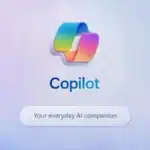Wikipedia reveals its most popular articles of 2023

Wikipedia, the world's largest free online encyclopedia, has unveiled the most popular articles of 2023. The list provides a unique snapshot of the global events, personalities, and trends that captured the world's attention throughout the year.
The data, released by the Wikimedia Foundation, reveals a diverse range of topics that were most sought after by the site's billions of users worldwide.
We tried Brave's AI chatbot Leo: It talks a lot about privacy, but is it truly private?

In early November, Brave, best known for its privacy-focused browser, launched its own AI chatbot called Leo. The chatbot is built into the desktop version of the browser (Brave says it will be coming to mobile soon), and was made available to all users for free. We at AdGuard, always eager to explore new AI-powered tools, and aftertesting Bing AI and playing with others, we couldn't resist the chance to check out Leo and assess its smartness and privacy features.
By default, Leo is found in the sidebar. To summon the genie AI-powered assistant, one simply needs to type 'ask Leo' in the address bar and it will materialize on the right side of the screen.
Foxit PDF Reader 2023.3 and Foxit PDF Editor 2023.3 embrace AI with new chatbot integrations

Foxit Software has unveiled major new features in its flagship PDF products with the release of Foxit PDF Reader 2023.3.23028 and Foxit PDF Editor 2023.3.23028.
Both tools -- available for Windows and Mac -- sport enhanced integration with ChatGPT with additional new features including translation, Q&A and content explanations. They also unveil the Foxit AI Chatbot, designed to answer users' questions about using the program.
ChatGPT can make fully playable 'choose your own adventure' games
OpenAI's big announcement: Why enterprises should pay attention

OpenAI held its first dev day conference last week, and announcements there made huge waves in technology and startup circles. But it’s enterprises that should be paying attention, and here’s why:
OpenAI made significant improvements to ChatGPT -- ones that address critical flaws that made it unsuitable for enterprise use cases because the results were inaccurate, non-credible and untrustworthy. What’s changed is that OpenAI has integrated retrieval augmented generation (RAG) into ChatGPT.
ChatGPT one year on: Why IT departments are scrambling to keep up

We’re nearly one year on since ChatGPT burst onto the scene. In a technology world full of hype, this has been truly disruptive and permanently changed the way we work. It has also left IT departments scrambling to keep up – what are the risks of using AI? Can I trust the apps with my data?
Should we ban altogether or wait, and see? But if we ban it, is there a risk of being left behind as other companies innovate?
Organizations flock to generative AI despite security concerns

A new survey of over 900 global IT decision makers shows that although 89 percent of organizations consider GenAI tools like ChatGPT to be a potential security risk, 95 percent are already using them in some form within their businesses.
The research for Zscaler, carried out by Sapio Research, also reveals 23 percent of those using GenAI aren't monitoring the usage at all, and 33 percent have yet to implement any additional GenAI-related security measures -- though many have it on their roadmap.
Why ChatGPT won't solve your real-time translation needs

New technologies debut almost every day. This constant barrage of novel tools creates a perpetual cycle of overshadowing -- someone is always introducing a new technology that eclipses the previous innovation, and then something even newer comes out, and the cycle repeats itself. However, OpenAI’s ChatGPT broke that cycle.
Since ChatGPT’s debut in late 2022, the generative AI tool has exploded in popularity. It took just two months for the platform to reach 100 million users, a speed that shattered the previous record for fastest-growing app. The creators of ChatGPT expect the tool to generate $200 million this year and project that number will grow to $1 billion next year. Other businesses, like Google and Grammarly, are taking note. Both of these organizations have developed their own generative AI tool to enhance their business operations.
Get 'ChatGPT For Dummies' (worth $12) for FREE

ChatGPT For Dummies demystifies the artificial intelligence tool that can answer questions, write essays, and generate just about any kind of text it’s asked for.
This powerful example of generative AI is widely predicted to upend education and business. In this book, you’ll learn how ChatGPT works and how you can operate it in a way that yields satisfactory results.
How to supercharge your productivity with AI: Tips and tools to work smarter, not harder

Productivity has significant importance in the contemporary dynamic work environment. AI has the potential to enhance operational efficiency and optimize operations by eliminating unnecessary tasks. AI has the potential to automate many procedures, provide valuable insights, and enhance workflows, hence enhancing professional productivity and overall cloud data management.
This piece explores the potential of artificial intelligence (AI) to enhance productivity.
How AI can help secure the software supply chain [Q&A]

Securing the software supply chain presents many challenges. To make the process easier OX Security recently launched OX-GPT, a ChatGPT integration aimed specifically at improving software supply chain security.
We spoke to Neatsun Ziv, co-founder and CEO of OX Security, to discuss how AI can present developers with customized fix recommendations and cut and paste code fixes, allowing for quick remediation of critical security issues across the software supply chain.
Can AI be sneakier than humans?

We've all heard about how AI is being used to improve cyberattacks, by creating better phishing emails for example, but does AI really have the same potential for being sneaky as humans?
New research from IBM X-Force has set out to answer the question, ‘Do the current Generative AI models have the same deceptive abilities as the human mind?’
How investing in 'prompt engineering' training can contribute to business success [Q&A]

While some might argue that generative AI is eliminating the need for certain jobs, it's also increasing the need for new roles and skills such as 'prompt engineering'.
With many people looking to upskill in this area to produce better results from AI tools like ChatGPT, and some companies creating new roles to stay ahead of AI's fast-paced developments, we spoke to Mike Loukides, vice president of content strategy for O'Reilly Media, to find out more about prompt engineering and why it’s important.
Microsoft already has some major improvements planned for Windows Copilot including UI upgrade

Windows 11 users in many parts of the world are now able to access Windows Copilot -- although, notably, not in the EU (privacy law, natch).
Much has been made of Microsoft's AI-powered assistant, and while it is still early days for the ChatGPT-based tool, Microsoft is already working on significant interface changes. The focus is on making Windows Copilot more customizable rather than forcing a one-size-fits-all design onto everyone.
With the launch of Bard Extensions, Google brings AI to many more of its products and services

The relentless march of AI shows no signs of slowing, and Google is eager to steal a piece of the actions from OpenAI's ChatGPT with its own Bard. It is with this aim in mind that Google has launched a huge update to its generative artificial intelligence tool in the form of Extensions.
With Bard Extensions, Google is achieving two things. Firstly, it expands the capabilities of Bard by letting it tap into the power and data of its other services including YouTube and Maps. Secondly, it makes the likes of Gmail and Drive more useful by harnessing the power of AI.
Recent Headlines
Most Commented Stories
© 1998-2025 BetaNews, Inc. All Rights Reserved. About Us - Privacy Policy - Cookie Policy - Sitemap.
